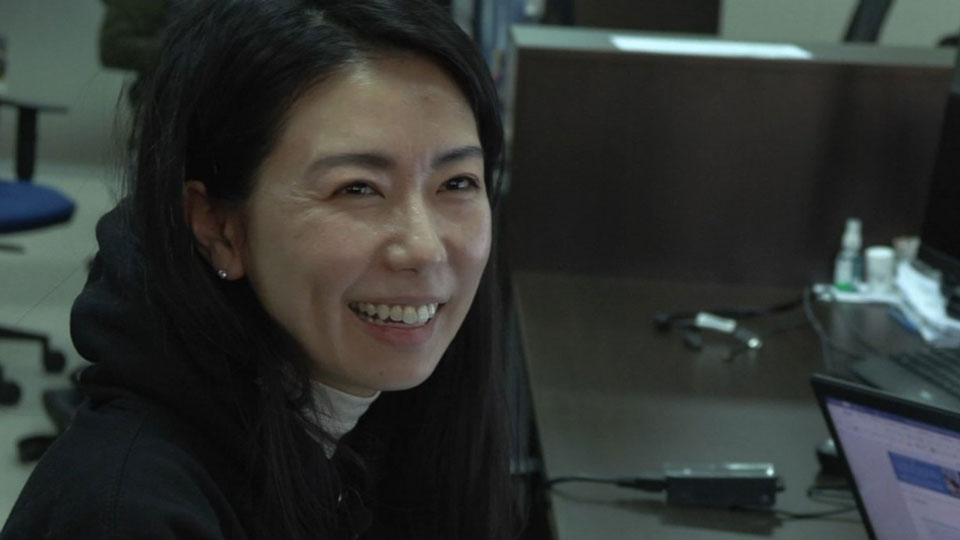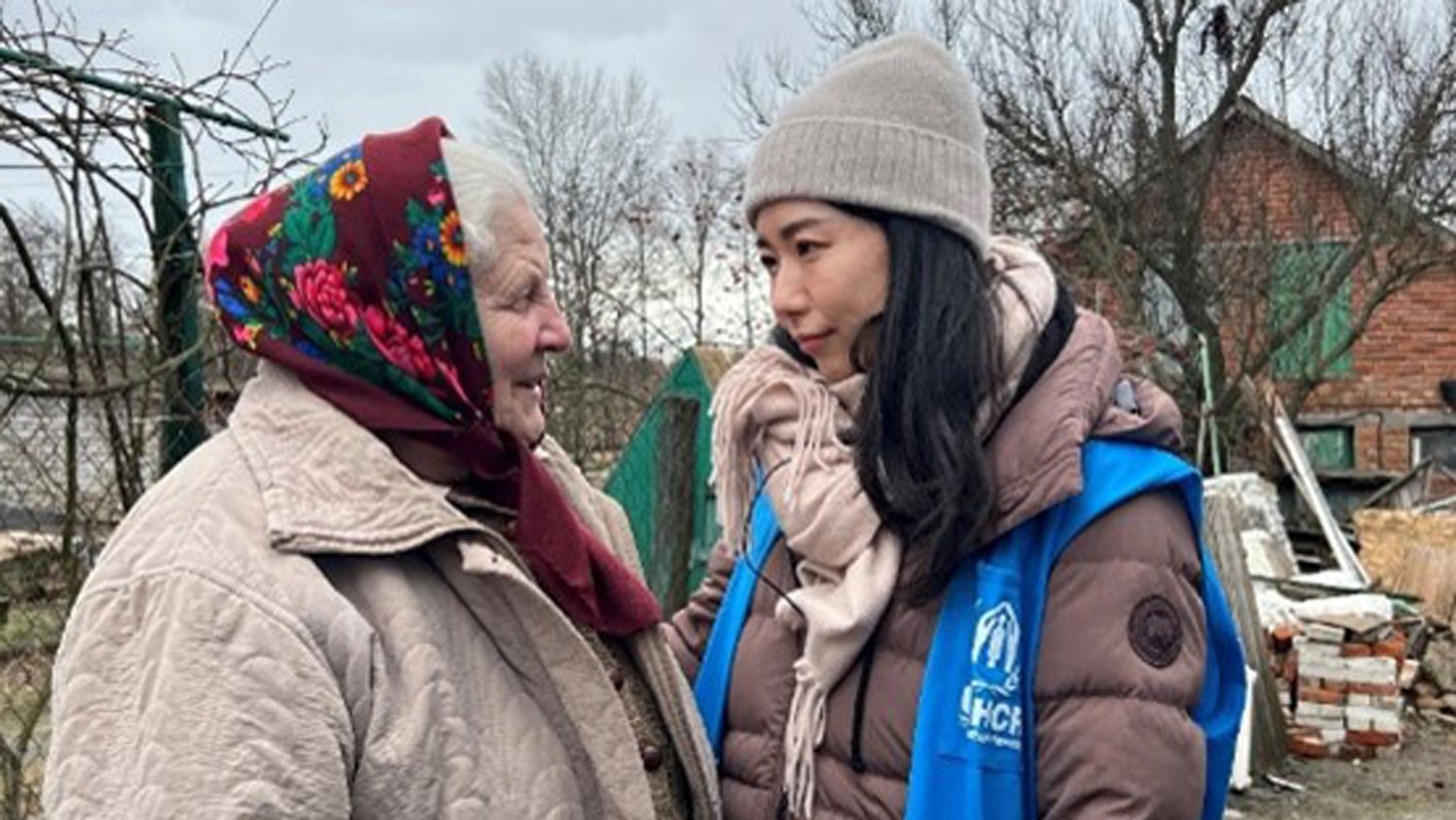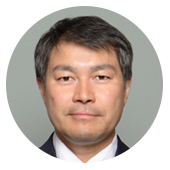Stepping back emotionally
Aoyama is a reporting officer. She compiles a weekly summary about the changing situation and what is needed on the ground.

She says that right after arriving in Ukraine, she felt the need to detach from her emotions, in order to do the work. "You just constantly see and hear and learn about all these dire needs and situations, so sometimes that's very tough," she says.
She found it tough at first to visualize the people behind the numbers. But as time passed, she realized the importance of telling the world what kind of situations these people were in, what they had lost, and what kind of support they needed.
"I also get to report on how we are supporting the situation. And I think that's something that reassures me a little, because I know our work is helping people."
One of Aoyama's weekly reports included a brief about a UNHCR project that encourages displaced women to acquire new skills, including sewing. She also reports about how supplies are distributed and what they did to improve people's lives.
"Rather than write about how many mattresses were delivered, I want to share the information when people tell me it was a small dignity not to have to sleep on the floor. I want the world to hear these stories," says Aoyama.

Fixing houses for broken hearts
In mid-February, Aoyama visited Korolivka, near the capital Kyiv. The Russian offensive has left more than half of the village damaged, and 20 percent of the houses have been completely destroyed.
The town is also home to those who evacuated from Chernobyl after the 1986 catastrophic nuclear disaster.
The UNHCR is helping to repair houses destroyed by Russian forces.

Aoyama visited Nina Zinchenko's home, where the UNHCR has provided financial and technical support to repair crumbled walls and broken windows. The 73-year-old now has a warm house, but she told Aoyama there would always be pain in her heart.

Zinchenko's 29-year-old grandson died in the war in March last year. He fought in the northern part of the country just after the invasion began. His widow is also a soldier, and is still fighting on the frontline.
Zinchenko said: "I want to see what (Russian President Vladimir) Putin would think of all of this, witnessing all the things he destroyed, those cemeteries where our children are buried. Would he feel the fear and pain that we are experiencing? I really want him to be brought here and see what he has done."

The United Nations estimates more than 17 million people are in urgent need of protection and humanitarian assistance because of the Russian invasion. More than 160,000 people in Ukraine received housing support from the UNHCR last year and many more need help.

Karolina Lindholm Billing, the UNHCR's representative in Ukraine, says one of the main difficulties is that the people in most need of humanitarian assistance are in difficult-to-reach areas. But the agency is determined to help: "Just over the last six days, UNHCR has participated in ten inter-agency convoys bringing relief items to people living in some of these settlements.
"Five of these convoys have gone to what we call very high risk areas within 20 kilometers of the active frontline. When we call it very high risk, it means that we are taking a risk and accepting a risk that something could happen to our staff just in order to reach those people who remain in these areas."

Continuing support and care
With no end in sight for the protracted war, there is concern that global support and interest will taper off. Aoyama urges people to stay informed of what is happening in Ukraine.
"It is very difficult to know how to solve the problems, not only in Ukraine, but also in many other places where the world's attention waned as wars and conflicts have been going on for many years.
"I hope that people will think about what is happening in Ukraine at some point in their daily lives — and that I can play a role by conveying what people here are saying."



